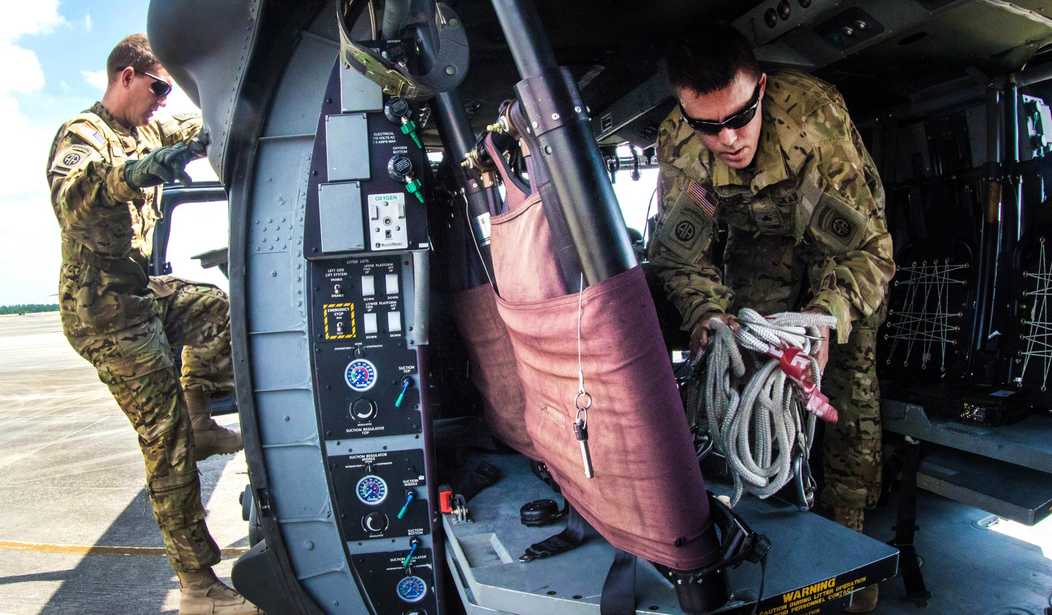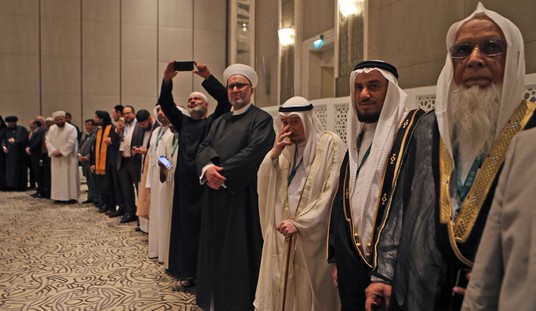Defense Secretary Ashton Carter told Fort Bragg troops readying to deploy to fight the Islamic State that “it ain’t going to be over” with ISIS even if they’re uprooted from Mosul and Raqqa.
Carter noted many of the XVIIIth Airborne Corps were “going a long way from home, long way from Bragg, to confront a dangerous adversary.”
“You’re joining a historic mission, because never before in modern history have so many nations come together to confront an enemy like ISIL,” he said today.
Lt. Gen. Stephen Townsend , commander of the XVIIIth Airborne, is taking over from Lt. Gen. Sean MacFarland, commander of III Corps, in directing U.S. operations against ISIS. About 300 soldiers are deploying from Fort Bragg for an expected nine months.
Carter discussed the three objectives of the campaign: “to destroy ISIL’s parent tumor in Iraq and Syria,” “to combat ISIL’s metastases everywhere they emerge around the world” and “to support our law enforcement partners, our intelligence partners, our Homeland Security partners in protecting our people here at home in our homeland.”
A major asked Carter during the Q&A if the secretary anticipated extending operations to a third country during the battle for Iraq and Syria.
“Let me be clear: I expect that,” Carter replied. “Now, on the other hand, you know, you are going to be destroying them, and — so they’re not going to be able to go anywhere else, I think, by the time you’re done with them, or not many of them. But nevertheless, the ideology and some of the people will spread.”
“Just to clear, we’re doing that now. And that’s absolutely necessary. You see that most recently in Afghanistan. Some of those are guys that have relocated there, some of those are guys that are just rebranding themselves as ISIL. You see that in Africa, in a number of locations, where we’re working again with local forces and coalition partners. And that’s going to be necessary.”
He stressed that “when we talk about that second part of the campaign, which is the metastasis, there’s no place that has been overrun as thoroughly and as brutally as Iraq and Syria.”
“And that’s where the whole thing started, and that’s where the idea is, and that’s why we need to crush the idea where it started,” Carter added. “But that isn’t going to — it ain’t going to be over then. No question about it; you’re right.”
At a media availability, Carter said the third part of the strategy — working with domestic agencies — involves supporting Homeland Security with “for example, the air defense of the country.”
“We support them in deploying troops to major events that could be targets for terrorist activity. We support them if and when something catastrophic happens, a natural disaster or hypothetically a major attack on the United States,” he said.
“So we’re — there are lots of different ways that we support them. So we’re not in the lead there as we are in a, you know, theater of war in that way. But it’s very much on our mind.”









Join the conversation as a VIP Member